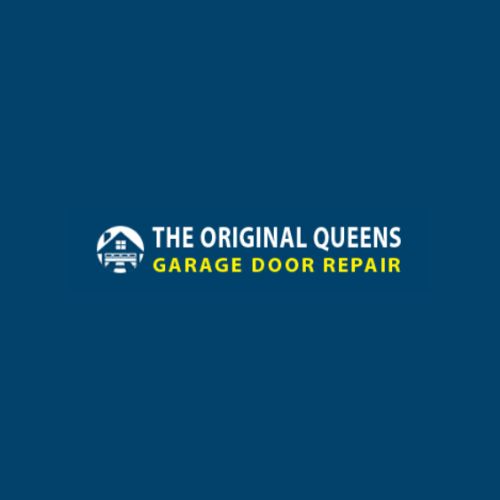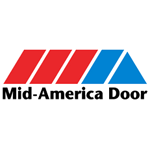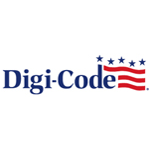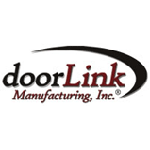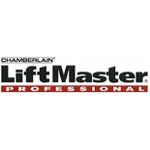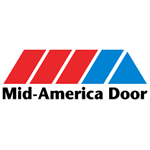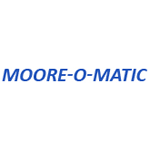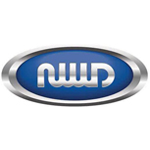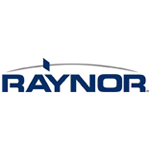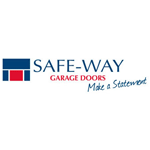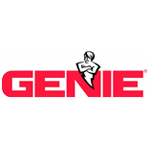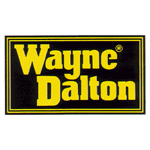That grating, squealing sound your garage door makes can be more than just an annoyance; it’s often a cry for help. Proper lubrication is one of the most critical and simple maintenance tasks you can perform to ensure your garage door operates smoothly and quietly. However, a common point of confusion for many homeowners is what product to use. Many reach for the familiar blue and yellow can of WD-40, but is that the right choice?
The debate between a dedicated garage door rollers lubricant and a general-purpose product like WD-40 is significant. Using the wrong one can not only fail to solve the problem but could even make it worse over time. This article will clarify the crucial differences between these products, explain why your choice matters, and guide you on how to properly lubricate your garage door for long-lasting, silent operation.
Why Lubrication Matters for Garage Door Rollers
Your garage door is the largest moving object in your home, and its rollers are the unsung heroes that guide it along the tracks. Proper lubrication is essential for keeping this complex system in top condition.
Importance of Lubrication
Think of lubrication as the lifeblood of your garage door’s moving parts. It serves several vital functions that go beyond just quieting a noisy door. A quality lubricant reduces the friction between the rollers and the metal tracks, allowing the door to move effortlessly. This simple action extends the lifespan of the rollers, tracks, and even the garage door opener, which doesn’t have to work as hard to lift and lower the door.
Common Problems Caused by Poor Lubrication
Neglecting this simple maintenance task can lead to a host of preventable issues. The most obvious sign is a squeaky, grinding, or shaky door that announces every arrival and departure. Over time, this friction leads to premature wear and tear on the rollers. The increased strain can also cause significant stress on your garage door opener’s motor and gears, leading to costly repairs or a full replacement. A poorly lubricated door is an inefficient and unreliable one.
What is WD-40?
Before we can compare, it’s important to understand what WD-40 actually is and what it was designed to do. It has become a household name, but its primary function is widely misunderstood.
Overview of WD-40
The name WD-40 stands for “Water Displacement, 40th formula.” It was created in 1953 by the Rocket Chemical Company in San Diego, California, to protect the outer skin of the Atlas missile from rust and corrosion. Its main purpose is to displace water, penetrate rust, and act as a degreaser and cleaner. It is a solvent, not a true lubricant.
Common Misconceptions About WD-40
The biggest misconception is that WD-40 is a long-term lubricant. While it can temporarily quiet a squeaky hinge because of its lubricating properties, this effect is short-lived. The product’s light mineral oil base evaporates quickly, leaving behind a thin film that can actually attract dust and grime. When used on garage door rollers, WD-40 can strip away any existing grease and leave the parts unprotected, ultimately making the problem worse.
What is Garage Door Rollers Lubricant?
Unlike a general-purpose product, a dedicated garage door rollers lubricant is engineered specifically for the demands of a garage door system.
Purpose of Garage Door Rollers Lubricant
These specialized formulas are designed to provide long-lasting lubrication that stands up to the elements and the heavy-duty operation of a garage door. They create a protective barrier that reduces friction, prevents rust and corrosion, and repels dirt and dust. The goal is to keep the moving parts gliding smoothly for months, not just a few days.
Types of Garage Door Lubricants
There are two primary types of lubricants recommended for garage door rollers and tracks:
- Silicone-Based Lubricants: This is one of the most popular choices. Silicone spray does not attract dust and can withstand a wide range of temperatures, making it ideal for garage environments. It dries quickly and leaves a clean, non-greasy film.
- Lithium-Based Lubricants: White lithium grease is another excellent option. It’s thicker than silicone spray and provides a heavy-duty layer of lubrication that adheres well to metal surfaces. It’s particularly effective for metal-on-metal contact points, like the bearings inside the rollers.
Both options are available in easy-to-use spray cans with directional straws for precise application.
Key Differences Between WD-40 and Garage Door Rollers Lubricant
Understanding the fundamental differences in composition and function will make it clear why one is the right choice and the other is not.
Composition
The core difference lies in their chemical makeup. WD-40 is primarily a solvent and a water displacer. It’s designed to clean and protect surfaces from moisture. A dedicated garage door rollers lubricant is formulated with silicone or lithium as its base, ingredients specifically chosen for their ability to reduce friction over a long period.
Functionality
This is where the distinction becomes critical. Using WD-40 on your garage door rollers is like using soap to wash your hands—it cleans them but doesn’t moisturize them. WD-40 will clean the rollers and tracks by breaking down existing grease and grime, but it will not provide the lasting lubrication needed for smooth operation. A proper lubricant, on the other hand, is designed solely to reduce friction and wear between moving parts.
Longevity
Because WD-40’s light lubricating agents evaporate quickly, any noise reduction you experience will be temporary. The surface is soon left dry and unprotected. Garage door lubricants are designed to be durable. They stick to the surfaces and continue to provide lubrication through hundreds of open-and-close cycles, protecting your door system for months at a time.
Application
While WD-40 is a versatile product for loosening rusty bolts or cleaning tools, it is not suitable for the ongoing maintenance of your garage door rollers. Using it can create a cycle where you have to reapply it constantly, all while dust and debris build up on the sticky residue it can leave behind. A specialized lubricant is the correct tool for this specific job.
When to Use WD-40 vs. Garage Door Rollers Lubricant
Although WD-40 shouldn’t be your go-to lubricant, it can still have a place in your garage door maintenance toolkit.
Appropriate Uses for WD-40
The best use for WD-40 on a garage door is as a cleaner or degreaser. If your rollers and tracks are covered in old, hardened grease and grime, a spray of WD-40 can help dissolve it, making it easier to wipe away. You can use it to clean the parts before applying a proper lubricant.
When to Use Garage Door Rollers Lubricant
A dedicated silicone or lithium-based lubricant should be used for all routine maintenance. Apply it after cleaning the tracks and rollers to ensure smooth, quiet, and efficient operation. This is the product that will protect your investment and prevent premature wear.
How to Properly Lubricate Garage Door Rollers
Following a simple, step-by-step process will ensure you do the job right and get the best results from your garage door rollers lubricant.
Step-by-Step Guide
- Safety First: Close the garage door and disconnect the automatic opener to prevent it from being activated accidentally while you are working.
- Clean the Tracks: Use a damp cloth to wipe down the inside and outside of the garage door tracks. If there is stubborn grime or old grease, you can use a degreaser or a small amount of WD-40 on a rag to clean it off. Wipe the tracks dry.
- Lubricate the Rollers: Using a silicone or white lithium grease spray, apply a small amount of lubricant to the bearings inside each roller. If you have nylon rollers, be careful not to spray the lubricant on the nylon surface itself—focus only on the metal stems and bearings.
- Lubricate Other Moving Parts: While you have the lubricant out, lightly spray the hinges, springs, and the top of the rail where the opener’s trolley rides.
- Wipe Off Excess: Use a clean, dry cloth to wipe away any excess lubricant. Too much can drip and attract dirt. You only need a thin film to do the job.
- Reconnect and Test: Re-engage the garage door opener and run the door up and down a few times to distribute the lubricant evenly. You should notice an immediate difference in the sound and smoothness of the operation.
Maintenance Tips
As part of your regular garage door maintenance tips, plan to lubricate your garage door rollers at least twice a year—once in the spring and once in the fall is a good rule of thumb. Listen to your door; if it starts to get noisy, it’s telling you it needs attention.
FAQs About Garage Door Rollers Lubrication
Can I use WD-40 on garage door rollers?
You should only use WD-40 as a cleaner to remove rust and grime before applying a real lubricant. It is not a long-term lubricant and can attract dust, making the problem worse over time.
What’s the best lubricant for garage door rollers?
The best lubricant for garage door rollers is a silicone-based spray or white lithium grease. These products are specifically designed for this purpose and provide long-lasting lubrication.
How often should I lubricate my garage door rollers?
It’s recommended to lubricate your garage door rollers, hinges, and springs at least twice a year as part of a regular maintenance routine.
What happens if I don’t lubricate my garage door rollers?
Without lubrication, the friction between the rollers and the tracks will cause them to wear out prematurely. It will also lead to a noisy, jerky operation and put excess strain on your garage door opener, potentially leading to expensive repairs.
Conclusion
When it comes to garage door maintenance, choosing the right product is essential. While the temptation to grab a can of WD-40 is understandable, it is simply the wrong tool for lubricating your garage door rollers. Its formula is designed to clean and displace water, not to provide the durable, friction-reducing barrier your door needs for smooth operation.
By investing in a high-quality garage door rollers lubricant, like a silicone or lithium-based spray, you are taking a crucial step in protecting your door system. This simple act of biannual maintenance will quiet your door, extend the life of its components, and save you from costly repairs down the road. For a smoother, quieter, and more reliable garage door, put the WD-40 down and pick up the right lubricant for the job.


